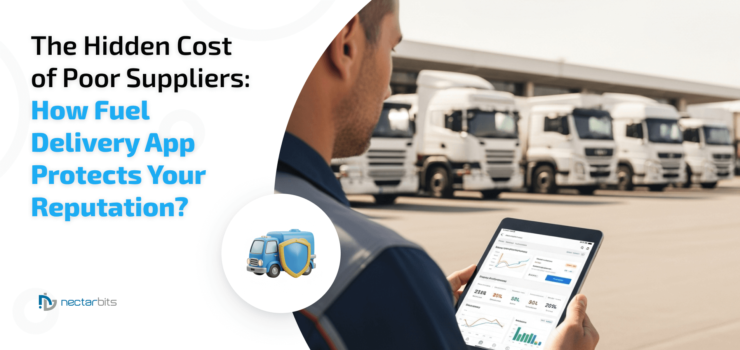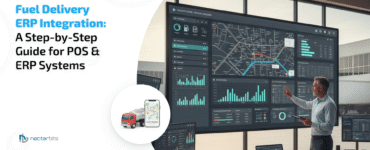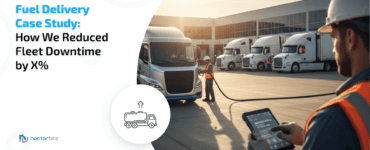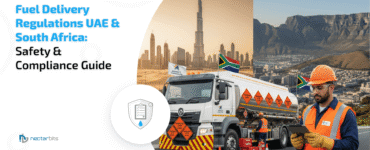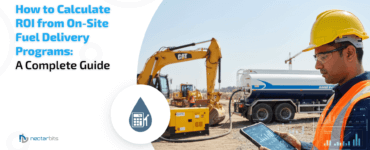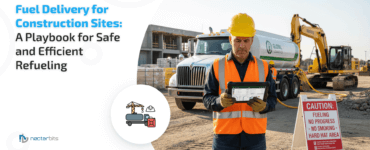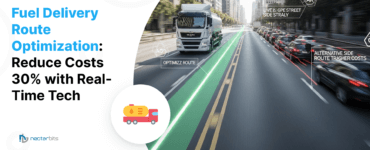In the competitive fuel delivery industry, your reputation is everything. It takes years to build trust with customers, but only one poor supplier relationship to destroy it completely. The foundational issue is that you can’t build a great delivery business on an unreliable or low-quality fuel supply.
Consider this sobering reality: According to a 2023 industry report by the American Petroleum Institute, approximately 18% of fuel-related business failures are directly attributed to supplier quality issues, including contaminated fuel, inconsistent delivery schedules, and compliance violations. For businesses in the UAE and Middle East region, where fuel standards are stringent and customer expectations are high, this percentage can be even more significant.
The hidden costs of poor fuel suppliers extend far beyond the obvious financial losses. They include:
- Damaged brand reputation that takes years to rebuild
- Lost customer lifetime value from churned clients
- Legal liabilities from compliance failures
- Operational disruptions that cascade throughout your business
- Employee morale issues stem from dealing with constant supplier problems
This is where a sophisticated fuel delivery app becomes not just a convenience tool, but a critical reputation management system. Modern fuel delivery app solutions integrate advanced supplier vetting processes, real-time fuel quality control, and comprehensive monitoring systems that act as your first line of defense against supplier-related reputation damage.
The Real Impact of Poor Suppliers on Fuel Businesses
1. Contaminated Fuel: The Silent Reputation Killer
Fuel contamination is one of the most devastating issues a fuel delivery business can face. According to Clean Fuels Alliance America, fuel contamination affects approximately 150,000 commercial vehicles annually in North America alone, with costs ranging from $500 to $5,000 per incident.
Common contamination issues include:
| Contamination Type | Impact | Average Cost per Incident | Reputation Damage Timeline |
| Water in fuel | Engine damage, vehicle downtime | $1,200 – $3,500 | 2-4 weeks of negative reviews |
| Sediment/particles | Filter clogging, injection system damage | $800 – $2,200 | 1-3 weeks |
| Microbial growth | Fuel degradation, system corrosion | $1,500 – $4,500 | 3-6 weeks |
| Wrong fuel type | Complete engine failure | $3,000 – $15,000+ | Immediate, severe |
| Chemical contamination | Regulatory violations, environmental fines | $5,000 – $50,000+ | Long-term brand damage |
When your business delivers contaminated fuel—even unknowingly—you become responsible in your customer’s eyes, not your supplier. This is the hidden cost that traditional supplier management fails to address.
2. Inconsistent Delivery Times: Death by a Thousand Delays
A study by McKinsey & Company found that 71% of customers expect on-time delivery as a baseline service standard, and 54% will switch providers after just two late deliveries. In the on-demand fuel delivery business, where customers depend on predictable service, unreliable suppliers create a domino effect of broken promises.
The cascade of damage:
- First delay: Customer frustration, service call volume increases
- Second delay: Negative review posted, customer seeks alternatives
- Third delay: Customer churns, and negative word-of-mouth begins
- Long-term impact: Reduced customer acquisition as reputation spreads
3. Compliance Violations: Legal Nightmares
In regions like the UAE, fuel suppliers must comply with stringent regulations set by authorities such as ESMA (Emirates Authority for Standardization and Metrology). Non-compliant suppliers expose your business to:
- Regulatory fines ranging from AED 50,000 to AED 500,000
- License suspension or revocation
- Criminal liability in severe cases
- Permanent damage to business credibility
According to the UAE Ministry of Energy data, compliance violations in the fuel sector increased by 23% between 2021 and 2023, with third-party supplier issues accounting for 67% of violations attributed to delivery services.

How Fuel Delivery Apps Transform Supplier Management
Modern fuel delivery app solutions aren’t just booking platforms—they’re comprehensive fuel business reputation management software that fundamentally changes how you interact with and monitor suppliers.
1. Advanced Supplier Vetting Process
A robust white label fuel delivery software includes multi-layered supplier verification that traditional manual processes simply cannot match.
Automated Vetting Components:
[Supplier Application]
↓
[Document Verification]
→ Business licenses
→ Safety certifications
→ Insurance coverage
→ Environmental compliance
↓
[Background Checks]
→ Regulatory violation history
→ Customer complaint records
→ Financial stability assessment
↓
[Quality Standards Verification]
→ Fuel testing protocols
→ Storage facility inspections
→ Transport vehicle standards
↓
[Performance Trial Period]
→ Limited delivery assignments
→ Quality monitoring
→ Reliability tracking
↓
[Ongoing Monitoring & Re-certification]
According to internal data from leading fuel delivery app development companies, businesses implementing automated supplier vetting reduce supplier-related incidents by an average of 73% within the first six months.
2. Real-Time Fuel Quality Control
Advanced custom fuel delivery apps for companies integrate IoT sensors and quality monitoring systems that provide unprecedented visibility into fuel quality throughout the entire supply chain.
Quality Control Technology Stack:
| Technology Component | Function | Quality Metric Monitored | Alert Threshold |
| IoT Fuel Sensors | Real-time composition analysis | Fuel purity, contamination | <98% purity standard |
| Temperature Monitoring | Storage condition tracking | Temperature fluctuations | Outside 15-25°C range |
| GPS + Time Stamps | Chain of custody verification | Delivery route integrity | Unauthorized stops |
| Digital Seals | Tamper detection | Container security | Any seal break |
| Automated Testing Logs | Quality documentation | Test frequency compliance | <Required frequency |
| Blockchain Records | Immutable quality trail | Supply chain transparency | Any data inconsistency |
These technologies work seamlessly within your fuel delivery app to create an automated shield against quality issues. Learn more about the Technology Stack for Fuel Delivery App Development that makes this possible.
3. Performance Analytics & Supplier Scoring
Fuel supplier management software embedded in modern delivery apps creates comprehensive supplier scorecards that remove subjectivity from supplier relationships.
Key Performance Indicators (KPIs) Tracked:
Delivery Performance Metrics:
- On-time delivery rate (Target: >98%)
- Average delivery time variance
- Schedule adherence percentage
- Emergency response time
Quality Metrics:
- Fuel sample test pass rate (Target: 100%)
- Contamination incident frequency
- Quality complaint ratio
- Testing protocol compliance
Compliance Metrics:
- Certification currency
- Documentation completeness
- Regulatory violation count
- Safety incident frequency
Customer Satisfaction Impact:
- Customer ratings for supplier deliveries
- Complaint correlation analysis
- Repeat customer rate by supplier
- Net Promoter Score (NPS) impact
A comprehensive study by Frost & Sullivan on fuel logistics found that businesses using data-driven supplier management reduce supplier-related customer complaints by 81% and improve overall customer satisfaction scores by 34%.

The ROI of Reputation Protection Through Fuel Delivery Apps
Let’s examine the concrete financial impact of implementing a fuel delivery app solution for reputation management.
Cost-Benefit Analysis
Traditional Supplier Management Costs (Annual):
| Cost Category | Annual Expense |
| Manual vetting and background checks | $12,000 – $25,000 |
| Quality testing and lab fees | $18,000 – $35,000 |
| Compliance monitoring staff | $45,000 – $75,000 |
| Incident response and customer compensation | $30,000 – $120,000 |
| Lost customers due to supplier issues | $80,000 – $300,000 |
| Legal and regulatory compliance | $15,000 – $50,000 |
| TOTAL | $200,000 – $605,000 |
Fuel Delivery App Solution Costs (Annual):
| Cost Category | Annual Expense |
| White label fuel delivery software subscription | $24,000 – $48,000 |
| Integration and customization | $8,000 – $15,000 (one-time) |
| IoT sensor and monitoring hardware | $12,000 – $25,000 |
| Staff training and adoption | $5,000 – $10,000 |
| Ongoing support and updates | $6,000 – $12,000 |
| TOTAL | $55,000 – $110,000 |
Net Annual Savings: $145,000 – $495,000
This represents a 260-450% ROI in the first year, with even greater returns in subsequent years as one-time costs are eliminated and reputation compounds positively.
Case Study: Reputation Transformation in the UAE Market
Background:
A mid-sized fuel delivery company in Dubai was experiencing rapid growth but suffering from a 3.2-star average rating due to inconsistent fuel quality and delivery reliability. Investigation revealed that 78% of negative reviews stemmed from two poorly-performing suppliers among their network of seven.
The Challenge:
Traditional manual monitoring couldn’t identify which specific suppliers were causing problems until after customer complaints emerged. The company was losing approximately 15-20 customers monthly due to reputation damage.
The Solution:
Implementation of a comprehensive custom fuel delivery app for companies with integrated supplier management features, including:
- Automated supplier performance tracking
- Real-time quality monitoring sensors
- Customer feedback correlation to specific suppliers
- Automated supplier compliance verification
- Predictive analytics for supplier risk assessment
Results After 6 Months:
| Metric | Before | After | Improvement |
| Average Customer Rating | 3.2 stars | 4.7 stars | +47% |
| Supplier-related Complaints | 47/month | 6/month | -87% |
| On-time Delivery Rate | 84% | 97% | +15% |
| Customer Retention Rate | 71% | 91% | +28% |
| Monthly Revenue | AED 480,000 | AED 685,000 | +43% |
| Supplier Network Quality | 5/7 reliable | 7/7 reliable | 100% reliable |
Key Success Factor:
The app’s automated supplier scoring system identified the problematic suppliers within the first three weeks, enabling swift remediation before further reputation damage occurred. The company replaced two suppliers and placed one on a performance improvement plan, all based on objective data rather than subjective assessment.
Discover more about the Impact of On-Demand Fuel Apps on business transformation.
Essential Features of Reputation-Protecting Fuel Delivery Apps
When evaluating fuel delivery app development options for your business, prioritize these reputation-protection features:
1. Supplier Portal with Transparency
A dedicated supplier interface that provides:
- Real-time performance dashboards
- Quality metrics and trends
- Compliance deadline reminders
- Training and certification tracking
- Direct communication channels
2. Automated Quality Assurance Workflows
Pre-delivery checklists that must be completed before fuel leaves the supplier facility:
- Fuel quality test completion and pass verification
- Vehicle inspection confirmation
- Driver certification validation
- Correct fuel type and quantity verification
- Safety equipment check
- Route optimization and time estimate
3. Customer Feedback Integration
Immediate post-delivery surveys that automatically correlate feedback with specific suppliers, creating actionable intelligence:
- Delivery professionalism ratings
- Fuel quality perception
- Timeliness assessment
- Overall satisfaction scoring
- Open comment analysis (sentiment AI)
4. Predictive Risk Analytics
Machine learning algorithms that identify supplier degradation patterns before they impact customers:
Early Warning Signals:
- Gradual decline in on-time delivery percentage
- Increasing variance in delivery times
- Rising quality test margin proximity (approaching failure)
- Documentation submission delays
- Increased customer service contact rates
- Declining customer ratings are trending
According to Gartner research, predictive analytics in supply chain management can reduce supplier-related disruptions by up to 65% when implemented effectively.
5. Regulatory Compliance Automation
For businesses operating in highly regulated markets like the UAE, automatic compliance tracking is essential:
Automated Compliance Features:
- License and certification expiration tracking
- Regulatory update notifications
- Automated compliance report generation
- Audit trail maintenance
- Documentation centralization
- Multi-authority requirement tracking
Building Supplier Excellence: Beyond Monitoring to Partnership
The most advanced white label fuel delivery software goes beyond detecting problems to actively fostering supplier excellence.
Supplier Development Programs
Tier-Based Incentive System:
| Performance Tier | Qualification Criteria | Benefits | Volume Allocation |
| Platinum Supplier | >99% on-time, zero quality issues, 4.8+ rating | Premium pricing, priority assignments, marketing co-promotion | 40-50% of volume |
| Gold Supplier | >97% on-time, <2 quality issues/year, 4.5+ rating | Standard pricing, regular assignments | 30-40% of volume |
| Silver Supplier | >93% on-time, <5 quality issues/year, 4.0+ rating | Standard pricing, monitored assignments | 10-20% of volume |
| Probationary | Below Silver standards | Reduced pricing, limited assignments, improvement plan | <10% of volume |
This gamification of supplier performance creates positive competition and continuous improvement while protecting your reputation through preferential allocation to top performers.
Collaborative Quality Improvement
Share aggregated (anonymized) performance data with suppliers, enabling them to:
- Benchmark against network averages
- Identify improvement opportunities
- Access best practice training
- Participate in quality workshops
- Earn premium status through excellence
Businesses implementing collaborative supplier development programs report a 56% improvement in overall supplier network performance within 12 months, according to Supply Chain Management Review.
Geographic Considerations: Reliable Fuel Suppliers UAE and Regional Markets
The UAE and broader Middle East region present unique supplier management challenges that make fuel delivery apps particularly valuable.
UAE-Specific Regulatory Requirements
Fuel suppliers in the UAE must maintain:
- ESMA (Emirates Authority for Standardization and Metrology) certification
- Environmental compliance certificates from local municipalities
- Transport vehicle approval from the Roads and Transport Authority (RTA)
- Employee safety training certification
- Insurance coverage meeting minimum statutory requirements
A sophisticated fuel delivery app maintains a centralized database of these requirements with automated renewal tracking, ensuring your supplier network remains compliant without manual monitoring effort.
Managing Reliable Fuel Suppliers UAE: Quality Standards
UAE fuel quality standards are among the strictest globally, aligned with Euro 5 specifications and increasingly moving toward Euro 6. Your app should verify:
Quality Specifications Monitoring:
- Sulfur content: <10 ppm for diesel
- Octane ratings: 95 and 98 RON for gasoline
- Vapor pressure specifications
- Additive package verification
- Seasonal specification compliance
According to UAE Ministry of Energy data, fuel quality complaints decreased by 67% between 2019 and 2023 as digital monitoring systems became more prevalent in the distribution network.
Implementation Strategy: Protecting Your Reputation from Day One
Transitioning to a comprehensive fuel delivery app solution for reputation management requires strategic planning to avoid disrupting existing operations.
Phase 1: Assessment and Planning (Weeks 1-2)
Action Items:
- Audit current supplier relationships and performance
- Document existing quality control processes
- Identify reputation vulnerability points
- Define critical quality and performance metrics
- Establish baseline performance measurements
Phase 2: Supplier Onboarding (Weeks 3-6)
Action Items:
- Communicate new quality standards to existing suppliers
- Conduct comprehensive supplier vetting for all current partners
- Provide supplier portal training
- Install quality monitoring equipment
- Begin parallel operation (traditional + app-based monitoring)
Phase 3: Full Transition (Weeks 7-10)
Action Items:
- Shift to app-based supplier assignment
- Activate automated quality alerts
- Launch customer feedback integration
- Implement supplier scoring and tiering
- Decommission manual processes
Phase 4: Optimization (Weeks 11-16)
Action Items:
- Analyze performance data patterns
- Refine supplier scoring algorithms
- Optimize supplier allocation based on performance
- Implement predictive analytics
- Launch supplier development programs
Expected Timeline to Full ROI: 4-6 months
Overcoming Common Implementation Challenges
Challenge 1: Supplier Resistance to Transparency
Solution: Frame the system as a partnership tool that benefits high-performing suppliers through:
- Premium pricing for top-tier performance
- Increased volume allocation
- Marketing co-promotion opportunities
- Objective performance recognition
Challenge 2: Technology Integration Complexity
Solution: Choose white label fuel delivery software with:
- Pre-built integrations for common fuel industry systems
- API-first architecture for custom connections
- Comprehensive technical support during implementation
- Phased rollout capabilities to manage complexity
Challenge 3: Staff Adoption and Training
Solution: Develop a structured change management program:
- Executive sponsorship and visible commitment
- Role-specific training programs
- Early wins communication to build momentum
- Continuous feedback mechanisms
- Performance incentives tied to system adoption
Challenge 4: Data Quality and Accuracy
Solution: Implement data governance protocols:
- Automated data validation rules
- Regular data quality audits
- Supplier data accuracy incentives
- Multi-source verification for critical data points
The Future of Supplier Management in Fuel Delivery
The fuel delivery industry is rapidly evolving, and supplier management capabilities are becoming increasingly sophisticated.
Emerging Technologies
1. Blockchain for Supply Chain Transparency
Immutable records of fuel origin, quality testing, and chain of custody that provide unprecedented transparency and accountability.
Expected Impact: 95%+ reduction in quality disputes through indisputable documentation.
2. AI-Powered Predictive Maintenance
Machine learning algorithms that analyze supplier vehicle and equipment data to predict maintenance needs before they cause delivery failures.
Expected Impact: 40% reduction in supplier-caused delivery delays due to equipment failure.
3. Autonomous Quality Testing
Automated fuel quality testing at multiple supply chain points using advanced sensor networks and AI-driven analysis.
Expected Impact: Real-time quality verification with 99.9% accuracy, eliminating contamination risk.
4. Dynamic Supplier Optimization
Real-time supplier selection based on current performance, customer location, traffic conditions, fuel type needs, and predictive quality scores.
Expected Impact: 25% improvement in delivery efficiency while maintaining quality standards.
Explore how these technologies are shaping On-Demand Fuel Delivery Service Providers and their operational models.
Measuring Success: KPIs for Reputation Protection
To ensure your fuel delivery app is effectively protecting your reputation, track these essential metrics:
Primary Reputation Indicators
| Metric | Target | Measurement Frequency | Action Threshold |
| Overall Customer Rating | >4.5/5.0 | Weekly | <4.3 requires immediate action |
| Net Promoter Score (NPS) | >50 | Monthly | <40 requires strategy review |
| Customer Retention Rate | >85% | Monthly | <80% requires intervention |
| Supplier-attributed Complaints | <5% of deliveries | Weekly | >7% requires supplier review |
| Quality Incident Rate | <0.5% | Daily | >1% requires immediate investigation |
| On-time Delivery Rate | >97% | Daily | <95% requires supplier performance review |
Secondary Performance Indicators
Supplier Network Health:
- Percentage of suppliers in Platinum/Gold tiers (Target: >70%)
- Average supplier tenure (Target: >18 months)
- Supplier quality score trend (Target: +5% YoY)
- Supplier compliance rate (Target: 100%)
Operational Efficiency:
- Average time to resolve supplier issues (Target: <24 hours)
- Supplier-caused delivery cancellations (Target: <2%)
- Emergency supplier substitution rate (Target: <5%)
- Quality testing coverage (Target: 100% of deliveries)
Financial Impact:
- Customer acquisition cost trend (Target: Decreasing)
- Customer lifetime value (Target: Increasing)
- Supplier-related incident costs (Target: <1% of revenue)
- Revenue per delivery (Target: Increasing)
Competitive Advantage Through Superior Supplier Management
In an increasingly commoditized fuel delivery market, superior supplier management becomes a key differentiator.
Building Sustainable Competitive Advantages
1. Reputation as a Moat
Consistent 4.5+ star ratings create a defensive moat against competitors, with customers willing to pay a 12-18% premium for guaranteed reliability according to PwC consumer research.
2. Supplier Network Exclusivity
Top-performing suppliers become loyal partners, creating barriers to competitor entry in your market when you offer:
- Consistent volume and payment
- Fair, transparent performance evaluation
- Partnership rather than transactional relationships
- Growth opportunities tied to your business expansion
3. Data-Driven Market Intelligence
Your fuel delivery app becomes an intelligence platform providing insights into:
- Regional fuel demand patterns
- Quality issues by supplier or geographic area
- Optimal pricing strategies by segment
- Customer preference trends
- Competitor vulnerability identification
4. Speed of Innovation
App-based infrastructure enables rapid deployment of new services:
- Premium fuel options with certified suppliers
- Eco-friendly fuel alternatives
- Corporate client specialized services
- Emergency delivery capabilities
- Subscription-based models
Companies with modern fuel business reputation management software can launch new services in weeks rather than months, capturing market opportunities before competitors react.
Ready to Protect Your Reputation with a Custom Fuel Delivery App?
Your business reputation is too valuable to leave vulnerable to supplier inconsistencies. Every day without comprehensive supplier management is another day your reputation is at risk.
Transform your fuel delivery business with a solution built for excellence:
- Automated supplier vetting that eliminates unreliable partners
- Real-time quality monitoring that prevents contamination disasters
- Predictive analytics that identify problems before customers do
- Compliance automation that protects against regulatory violations
- Performance optimization that continuously improves service quality
Partner with industry-leading experts to Develop A Fuel Delivery App tailored to your business needs and market requirements.
Our comprehensive white label fuel delivery software includes all the reputation protection features discussed in this article, customizable to your specific operational requirements and regional compliance needs.
Don’t wait for a supplier incident to damage your hard-earned reputation. Let’s discuss how a custom fuel delivery app can safeguard your business while driving growth.
Contact Our Team Now to receive a personalized assessment of your supplier management vulnerabilities and a roadmap to reputation-protecting technology implementation.

Conclusion: Reputation is Your Most Valuable Asset
In the fuel delivery business, your reputation represents years of consistent service, quality assurance, and customer trust. A single poor supplier relationship can undo years of reputation building in a matter of weeks.
The hidden costs of poor suppliers extend far beyond immediate financial losses:
- Customer trust erosion that takes years to rebuild
- Market positioning damage that limits growth opportunities
- Team morale is impacted by constant firefighting
- Regulatory scrutiny that increases operational burden
- Competitive disadvantage as customers migrate to more reliable providers
Modern fuel delivery apps transform supplier management from a reactive, manual process fraught with blind spots into a proactive, data-driven system that continuously protects and enhances your reputation.
The businesses thriving in today’s competitive fuel delivery landscape aren’t those with the lowest prices or largest supplier networks—they’re those with the most reliable, quality-focused operations built on excellent supplier partnerships and managed through sophisticated technology.
The question isn’t whether you can afford to implement comprehensive supplier management technology—it’s whether you can afford not to.
Your reputation is on the line with every delivery. Make sure it’s protected by systems designed for excellence.
Learn more about comprehensive solutions through our guide to Fuel Delivery App Development and take the first step toward unshakeable reputation protection today.
Continue Your Journey: Recommended Reading
Want to dive deeper into building a resilient fuel delivery business?
Explore our comprehensive guide: “How On-Demand Fuel Delivery Apps Manage to Fuel Business Growth in Crisis Situations”
This article examines how leading fuel delivery businesses leveraged technology to not only survive but thrive during challenging market conditions, with specific case studies and implementation strategies you can apply immediately.
Read the Full Guide on Crisis-Resilient Fuel Delivery →
FAQs:
By using real-time fuel quality monitoring and IoT sensors, the app ensures only verified, high-quality fuel reaches customers, reducing contamination risks.
Look for supplier vetting, real-time quality checks, predictive analytics, compliance tracking, supplier scoring, and customer feedback integration.
Businesses can save $145K–$495K annually, with a 260–450% ROI in the first year, thanks to fewer supplier issues and improved customer retention.
Automated vetting checks licenses, certifications, performance, and compliance to ensure only reliable suppliers deliver fuel.


